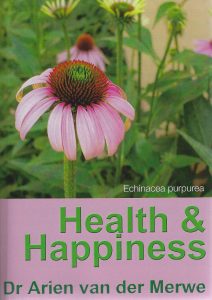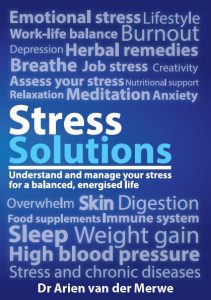Top 10 Tips to Prevent and Manage Inflammation
Written by Dr Arien van der Merwe
 Firstly, what is inflammation?
Firstly, what is inflammation?
You slam your finger in the car door. It immediately turns red, warms up and starts to become swollen. And it is sore! Why does this happen?
- Pain serves to alert you to the problem and to keep your finger still.
- The swelling puts pressure on nerves to make sure you cannot ignore the injury.
- The redness is your body sending blood to the site of injury. The blood carries the healers, it is like an ambulance with emergency personnel on board. Lots of blood = redness and heat.
All these are the characteristics of the fire associated with acute inflammation. We tend to think that inflammation is all bad but your body’s inflammatory response is vital to the healing process. Inflammation is the Immune System Troops deploying and each one of the squad members have a specific role to play in healing your finger.
Can you see why taking anti-inflammatory medication may be counter-productive?
BUT, what happens when orders to the Immune System Troops are not clear?
The immediate threat may be over, but they never get the command to retreat, because of some unknown break in communication. The squad keeps on working… This is where inflammation turns from friend to foe: chronic inflammation.
The renegade fire of chronic inflammation has been linked to most, if not all modern day chronic diseases, even when the connection may not be altogether obvious. These include osteoarthritis, heart disease, metabolic syndrome, obesity, diabetes, cancer, dementia, depression, Alzheimers, autoimmune disease, even autism. It becomes the silent killer, as it gradually destroys our cells’ function and ultimately our organs. This is also the inflammation that leads to accelerated ageing.
The good news is that there is hope!
My top 10 tips to prevent and manage inflammation:
- Food as medicine
Food provides the nutritional building blocks and fuel for the body and its immune system. The poor quality of the typical modern Western diet, remains the primary underlying cause of the chronic degenerative disorders related to inflammation, so prevalent in our society.
Acute inflammation only turns into chronic inflammation when there are imbalances and low levels of nutrients in the diet. Most diets today contain twenty to thirty times more pro-inflammatory nutrients than a century ago.
It takes the right mix of nutrients for the body to form the proper counterbalance between pro-inflammatory substances required to fight infection and irritants, and anti-inflammatory substances needed to moderate and turn inflammation off at the appropriate time, so that tissue healing and repair can begin.
Top anti-inflammatory foods to eat:
Eat whole, raw, and super foods. Eat unprocessed, organic, unrefined, fresh, plant based (for phytonutrients) and high fiber foods. Buy organic, at a farmer’s market, or even better, grow some of your own in your wellness food garden!
Fresh fruits and vegetables
- Eat different types, colours and textures when it comes to fruit and vegetables.
- Some examples: apples, asparagus, beans, broccoli, blackberries, blueberries, cabbage, cauliflower, cantaloupe, green beans, kiwi, leafy greens, peaches, pears, plums, raspberries, spinach and strawberries.
Lean protein sources
- Choose free range poultry, organic eggs, grass fed beef, ostrich, wild game and cold-water fish
Eat complex unrefined carbohydrates
- It is very important to avoid sugar and sugar based products, refined grains, grain fed meat and fish, as well as conventional cooking oils, block margarine, or anything with hydrogenated or partially hydrogenated fats.
- Steer clear of simple carbohydrates such as breads, cereals with sugar, french fries, artificial juices, pancakes, pasta, cold drinks, sugar and pastries
- Eat complex carbohydrates such as rolled oats, sweet potatoes, basmati, wild or brown rice.
Super foods
- Some examples: berries – strawberries, gooseberries, black berries; cherries; nuts, seeds, legumes; cereal grains, grasses – wheatgrass (barley), brown and wild rice, oats; plant oils: olive, grapeseed, avocado; blue green algae; red and black grapes; ripe tomatoes; raw (not pure) honey; pulses/legumes; garlic; mushrooms; bee pollen; sprouts; aloe ferox – use in a smoothie; seaweed; raw cacao – beans, nibs, powder, butter
Healthy fats
- Use monounsaturated fats found in nature, such as olive oil, nuts, grapeseed oil, avocadoes, and more omega 3 essential fatty acids from flaxseed, and cold water fish like sardines, herring, trout and wild salmon. These fish eat the plants (such as algae) on the river and ocean beds that are rich in omega 3 fatty acids.
- Chronic inflammation develops when there is an imbalance in the type of fats eaten. Maintaining the proper ratio between omega 3 and omega 6 fatty acids is the key that enables the body to produce the correct balance of pro-inflammatory and anti-inflammatory prostaglandins.
- The main dietary fire fighter that works to restore balance and prevent or reverse chronic inflammation, is omega 3 fatty acids.
- Excessive amounts of omega 6 (refined vegetable oils used in cooking, frying, fast foods) combined with trans and saturated fats, shift the body towards chronic inflammation.
- Chickens and cattle that are fed on grain instead of pasture or free range food, contribute to this imbalance. Grasses and leafy green plant material are much higher in omega 3 fatty acids.
- Grass fed beef also contains CLA, another healthy fatty acid that balances the inflammation found in obesity.
- Egg yolks of eggs from free range chickens, contain twice as much omega 3, protein and bioflavonoids such as lutein and xeaxanthin, than eggs from grain fed chickens.
- Even salmon, a well-known and excellent source of omega 3, is often farmed, meaning that it receives omega 6 food sources, therefore no longer a rich source of omega 3 as is wild salmon.
- Use nutriceutical food supplements
The following nutriceutical (nutri-=food; -ceutical = medicine) grade food supplements help reduce inflammation:
Take a daily comprehensive antioxidant supplement, with optimal quantities of vitamins A, E, B-complex, C, D, E, bioflavonoids.
The following minerals in a food form (amino acid chelate): calcium, magnesium, selenium, zinc, boron
- Magnesium: many research studies have found a common denominator in low magnesium levels being a contributing factor in the inflammatory process, allowing inflammation to run unchecked. Low magnesium levels have been implied in nearly every single disease linked to an underlying inflammatory process, i.e. high blood pressure, heart disease, arthritis, fibromyalgia, diabetes, depression, etc. Magnesium acts as a general cell tonic, while it reduces inflammation and systemic stress. Magnesium is also important in overall cell energy (ATP) production, hormonal and enzyme production and function, which all reflect on the process of inflammation.
Fish oil (omega 3 as found in salmon oil), all of which help reduce inflammation.
I made it my life’s work to study the body and natural medicine, so that you do not have to worry about it. As a medical doctor, I recommend that you start taking them. It is the least you can do as the guardian of your own amazing galaxy – your body – to support all your cells in supporting you!
Our health insurance policy, known as the Basic 3 or Optimal Health Bundle contains optimal quantities of all the herbs and micronutrients (vitamins & minerals) your body needs to prevent and manage inflammation and function at its best!
- Anti-inflammatory help from nature
Many herbs, spices and essential oils can give fast and gentle relief from the symptoms of inflammation, while restoring health over the longer term.
My favourite Anti-inflammatory Hot Toddy Recipe (e.g. colds, flu, fever, sinusitis, muscle aches and pains, joint pains, and so on): mix a pinch each of dried ginger, cinnamon, turmeric and mustard powder in a small glass of warm water, add some raw honey to taste and drink regularly for fast relief. These are all excellent anti-inflammatory herbs and spices, also with many other healing properties.
Other useful herbs: Boswellia serrata, Arnica, bromelain found in pineapples, papain found in paw-paws, Devil’s claw, licorice root, white willow bark, (the natural form of aspirin that contains constituents that protect the mucosal lining of the stomach), Angelica sinensis, yarrow, black pepper, rosemary, basil, cardamom, chives, cloves, garlic and parsley. This can be used either as food if suitable, or as herbal infusions, capsules or tablets obtainable from most pharmacies and health shops. Follow instructions on the container.
Use essential plant oils in a carrier oil (such as almond) to use for massaging sore and aching limbs or muscles, or to put a few drops, undiluted into your bath or in a burner to inhale while you relax in a hot bath. Good choices include thyme, rose, clove, eucalyptus, bergamot and fennel oil.
- Avoid allergens
Find out what you’re allergic to and stop eating those foods. Gluten and dairy are two common culprits. It is important to remember however, that once your immune system is restored to its normal healthy state, allergies often disappear by themselves.
- Avoid toxins
Pollution and pesticides, heavy metals, additives in your creams, soaps and shampoos – the toxin list goes on. These contribute to your body’s confusion in trying to decipher its own messages, therefore avoid them as much as possible.
- Include Pre- and probiotics
Heal your intestines by taking pre- and probiotics to aid digestion and restore the balance of healthy bacteria in your gut. This reduces inflammation.
- Exercise
Your body was made to move! Regular, moderate, fun exercise such as swimming, walking, strength, dancing and yoga, reduces inflammation. Strenuous exercise and over training can lead to injuries resulting in acute inflammation. Moderate exercise also improves immune function, strengthens the cardiovascular system, corrects and prevents insulin resistance, improves mood and neutralises the effects of stress.
- Chill out!
Manage your stress triggers. Stress gives only one command: we are in a war-zone! Most of us are not even aware that this is the constant command we give our bodies, because we are so used to being all tensed-up.
- Actively make time to de-stress and consciously replace this destructive message with one of relaxation.
- What and how you think has a profound effect on the messages you send to your cells. Your body only does what you tell it, therefore be mindful of this conversation.
- Maintain work-life balance as best you can, learn to let go, allowing your natural healing mechanism free access, and an open channel to do what it is meant to do. This is probably the most important tool for restoring your body and mind to its natural state of health and happiness.
- Learn how to actively relax. Relax your whole body, and lower inflammation through yoga practice and daily meditation, take regular deep breathing breaks, and a long soak in a hot bath with anti-inflammatory essential oils as mentioned above.
If you struggle to relax, like many of us do, click here for more information on my Stress Solutions Book & CD. I developed both to teach people practical ways to relax.
- Sleep
I cannot emphasise this point enough. Your body requires time to sleep to replenish, recover and refresh. The troops do their admin and filing and when you wake up, everything is where it is supposed to be.
- Your body as a whole
And last but not least: our body is an orchestra composed of talented musicians. They work together to create the symphony that is your health. If the violinist is off-key, the orchestra fails. No single system exists in isolation but all your organs and biological systems work as a whole and has a profound influence on one another. Take this holistic view and you will have gone a very long way in understanding the road to abundant health and happiness.
Follow these guidelines to send a clear command to your troops: then sit back and enjoy how well your body responds to this amicable conversation, to help it run a productive and healthy inflammatory response. Your amazing body’s only wish and prime directive is to be healthy!









